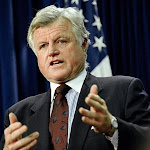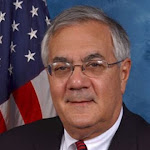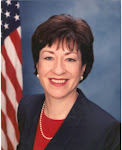
What’s heard in virtually all circles who are even slightly sympathetic to President Barack Obama’s agenda are pretty homogenous; tax cuts for rich should expire, all tax cuts should expire, etc. But what seems to be ignored or rather the idea that remains unexplored is turning these tax cuts into the economically stimulating reduction of government revenue Republicans claim they are on their own.
Clearly, we have plenty of anecdotal evidence that suggests tax cuts on their own DO NOT create jobs. George Bush’s tax cuts were arguably unnecessary, whether or not that’s the case, the data reflects a stagnation in job creation throughout his tenure as President. To compound onto the fact the cuts didn’t create jobs, the tax cuts quickly ate away at the budget surplus left at the end of the Clinton administration and turned into a crippling deficit as Bush ramped up two wars and increased defense spending to unprecedented levels.
The math doesn’t quite work out here. High or normal government revenue means low deficits, Bush made a terrible mistake in severely cutting tax revenues right before he would begin the country’s biggest plunge into deficit spending since the Truman administration in World War II. So much for fiscal conservatism.
So now we find ourselves in the middle of a fight to renew or kill these tax cuts, for better or worse. The common theme sounded by left and right is that of a false dichotomy. Tax cut extension and tax cut expiration are NOT our only two options, and it seems disingenuous that the White House and Democrats would let that storyline develop on its own that way.
A real progressive plan would seek to put Republican’s assertions of job creation through tax cuts where their mouth is, not just seek to kill them in an effort to get back at the wealthy.
What does this mean?
Well, it means making it IMPLICIT and perhaps legally BINDING in the bills that these tax cuts be used in ways that would create jobs.
This could be done in one of two ways.
1. Prohibit the savings in tax cuts from being held, as in, don’t let the tax cuts pad corporation’s balance sheets. Or for the major companies who are doing not so well, prevent the savings from being used to stave off bankruptcy.
2. Make the taxes ‘opt-in’. In order to receive the tax breaks, the corps would need to commit investing AT LEAST 1/4th to 1/2 of the tax savings into expansion, equipment, or straight up new jobs, higher commitments resulting in lower tax rate. To do this, corps who want to ‘opt-in’ could be required to jump through bureaucratic loops that would require financial documents proving they’ve invested sufficiently, at the risk of losing the savings altogether.
The 'opt-in' component would give corporations a choice. On the other end, significantly diminished tax cuts could be given to corporations who don't opt in, as a way to make sure it's not a completely forced choice to 'opt-in'.
This is clearly a more progressive plan than anyone in DC would likely envision, but this solves every single problem the tax cuts pose if extended on their own.
If the tax cuts were extended for 10 years, or even longer under these conditions, and assuming a reinvestment of at least $1 TRILLION of the $4T the cuts would cost, this is what would happen:
A) The tax cuts would likely pay for themselves.
B) TONS of private sector jobs created.
C) Tax cuts would truly stimulate economy.
D) If extended over 10yrs & correctly worked, deficit could be slashed by billions.
If the President is going to be truly looking to make the regretful realities of our time work for American citizens, then this is a good way to start. We don’t have to kill every policy every Republican has come up with, we can make them work for us if we can remain thoughtful, pragmatic, patient, and hopeful. We can’t expect to obtain victories by throwing temper tantrums or threatening to primary a politician when they don’t see things the way we see them.
It’s high time we begin to look at Washington and politics in a different way, no longer the support/oppose custom we are used to seeing, but in a ‘how can we make this work for everyone’ kind of way. If politicians in DC can get around that idea, the country may not need to be so bitterly divided all the time.



































































